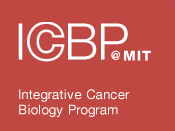| Title | The mTOR-regulated phosphoproteome reveals a mechanism of mTORC1-mediated inhibition of growth factor signaling. |
| Publication Type | Journal Article |
| Year of Publication | 2011 |
| Authors | Hsu, PP, Kang, SA, Rameseder, J, Zhang, Y, Ottina, KA, Lim, D, Peterson, TR, Choi, Y, Gray, NS, Yaffe, MB, Marto, JA, Sabatini, DM |
| Journal | Science |
| Volume | 332 |
| Issue | 6035 |
| Pagination | 1317-22 |
| Date Published | 2011 Jun 10 |
| ISSN | 1095-9203 |
| Keywords | Animals, Cell Line, GRB10 Adaptor Protein, Humans, Insulin, Intercellular Signaling Peptides and Proteins, Mass Spectrometry, Mice, Naphthyridines, Phosphoproteins, Phosphorylation, Proteins, Proteome, Signal Transduction, Sirolimus, TOR Serine-Threonine Kinases |
| Abstract | The mammalian target of rapamycin (mTOR) protein kinase is a master growth promoter that nucleates two complexes, mTORC1 and mTORC2. Despite the diverse processes controlled by mTOR, few substrates are known. We defined the mTOR-regulated phosphoproteome by quantitative mass spectrometry and characterized the primary sequence motif specificity of mTOR using positional scanning peptide libraries. We found that the phosphorylation response to insulin is largely mTOR dependent and that mTOR exhibits a unique preference for proline, hydrophobic, and aromatic residues at the +1 position. The adaptor protein Grb10 was identified as an mTORC1 substrate that mediates the inhibition of phosphoinositide 3-kinase typical of cells lacking tuberous sclerosis complex 2 (TSC2), a tumor suppressor and negative regulator of mTORC1. Our work clarifies how mTORC1 inhibits growth factor signaling and opens new areas of investigation in mTOR biology. |
| DOI | 10.1126/science.1199498 |
| Alternate Journal | Science |
| PubMed ID | 21659604 |
| PubMed Central ID | PMC3177140 |
| Grant List | AI47389 / AI / NIAID NIH HHS / United States CA103866 / CA / NCI NIH HHS / United States CA112967 / CA / NCI NIH HHS / United States ES015339 / ES / NIEHS NIH HHS / United States GM68762 / GM / NIGMS NIH HHS / United States R01 CA103866-09 / CA / NCI NIH HHS / United States R01 CA129105-05 / CA / NCI NIH HHS / United States R37 AI047389-13 / AI / NIAID NIH HHS / United States / / Howard Hughes Medical Institute / United States |
